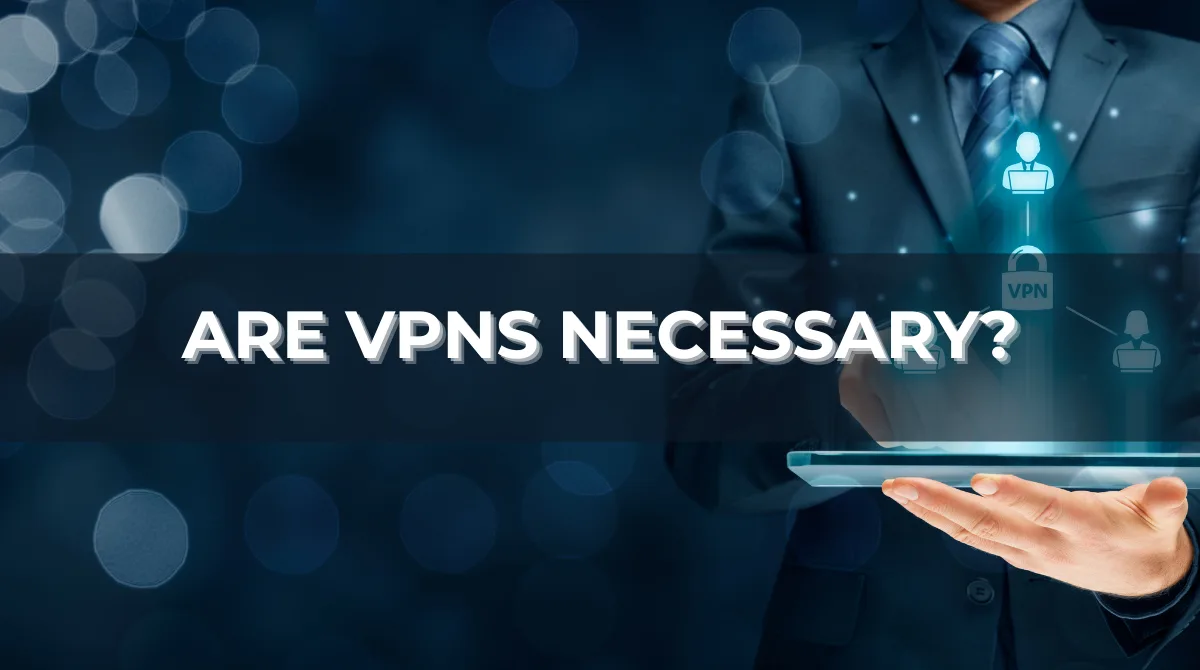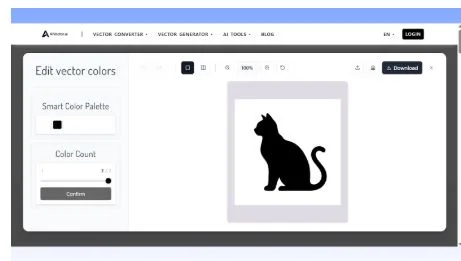Safelyo explains: Are VPNs necessary in 2025?
When I first connected to free Wi-Fi at a hotel, I assumed my browsing was safe because the network required a password. Later, I learned that unencrypted traffic can still be intercepted, and that’s when I started asking myself: are VPNs necessary for everyday users?
In this guide, you’ll learn:
- What a VPN really does (and its limits)
- When a VPN is essential and when it may not be
- How different types of users should decide
- Features to check before choosing a provider
Let’s begin with the basics of what a VPN actually does.
1. What a VPN really does
A Virtual Private Network (VPN) encrypts your internet traffic and routes it through a secure server. This process hides your real IP address and creates a “tunnel” between your device and the internet. It prevents outsiders, such as hackers on public Wi-Fi or even your ISP, from easily monitoring your activity.
What a VPN really does
However, it is important to recognize the limits. Since most websites today already use HTTPS encryption, your connection is already partially protected. A VPN adds another layer, but it does not make you completely invisible online.
According to CISA (2024), VPNs are especially useful when “employees connect over untrusted networks,” because they reduce the risk of credential theft and data exposure. For regular users, the same logic applies to public hotspots and while traveling.
In short, VPNs provide:
- Encryption that scrambles your traffic
- IP masking to hide your real location
- Tunneling that shields your traffic from local snooping
But they do not replace common-sense security measures like updated software, antivirus protection, or cautious browsing habits.
2. Are VPNs necessary? A simple answer
Are VPNs necessary? The short answer is that VPNs are sometimes necessary, but not in every situation. They are most valuable when you connect to networks that you do not fully trust, such as airport Wi-Fi, hotel hotspots, or public cafés. In these cases, a VPN can stop people on the same network from intercepting your data.
Are VPNs necessary? A simple answer
For daily browsing at home on a secured network, a VPN may not always add significant protection if you already use HTTPS websites and strong security practices. However, many users still prefer one for added privacy, especially to keep their ISP from logging their activity.
According to the Electronic Frontier Foundation (EFF, 2023), VPNs are “an effective way to add a layer of privacy against network operators and local observers,” but they do not make you anonymous online. This perspective captures the balance most people need to consider when deciding.
In summary, for the question: “Are VPNs necessary?”:
- Yes, necessary on untrusted networks, during travel, and for privacy-conscious users
- Not always necessary on secure home networks with low risk
- Still helpful if you want to bypass throttling, access content abroad, or reduce ISP tracking
3. Quick decision matrix by user type
The value of a VPN depends heavily on how and where you use the internet. If you are asking are VPNs necessary for your situation, the answer depends on which type of user you are. Below is a more detailed breakdown by user type to help you evaluate your own needs.
3.1. Traveler or student on public Wi-Fi
Public Wi-Fi networks, such as those in airports, hotels, and coffee shops, are notorious for weak security. Attackers can set up “evil twin” hotspots that look legitimate but capture all your traffic. Even official networks may be poorly secured, making it easy for someone to sniff data.
In this scenario, a VPN is highly recommended. It encrypts your traffic end-to-end, ensuring that even if someone intercepts the connection, the data is unreadable.
For example, when I once connected to a hotel Wi-Fi during a trip, my VPN app showed multiple attempts of blocked intrusion traffic. Without it, my logins and emails could have been exposed.
Key benefits for travelers and students:
- Protects sensitive logins on shared networks
- Prevents credential theft through packet sniffing
- Helps bypass geographic restrictions (streaming, messaging apps)
3.2. Remote worker or small business
Remote work has expanded attack surfaces for many organizations. Employees often access company resources from personal devices and home routers, which may not have enterprise-grade protection. A VPN secures communication by encrypting all traffic between the worker and company servers.
According to ZDNet (2023), small and medium businesses increasingly adopt VPNs because they reduce the risk of corporate espionage and data breaches. For freelancers, a VPN also helps protect confidential documents when sending files to clients.
Key benefits for professionals:
- Shields corporate data from interception
- Ensures secure file transfers and email exchanges
- Reduces compliance risks for industries handling sensitive data (finance, healthcare)
3.3. Casual home user
If you mainly browse social media, watch YouTube, or stream Netflix from a secured home Wi-Fi, a VPN may not always be essential. Modern home routers with WPA3 encryption and HTTPS websites already offer a strong baseline of protection.
However, casual users still find value in VPNs for:
- Stopping ISPs from tracking browsing habits for advertising
- Accessing geo-blocked content like sports streams or foreign Netflix libraries
- Preventing bandwidth throttling when streaming or gaming
In my own experience, I used a VPN to bypass ISP throttling during peak hours, which immediately improved video streaming quality.
3.4. High-risk users (journalists and activists)
For journalists, political activists, or anyone operating under censorship regimes, VPNs are critical tools. They hide your real IP, make traffic harder to trace, and enable access to blocked news websites or communication apps.
The Electronic Frontier Foundation (EFF, 2023) advises that at-risk groups should prioritize VPNs that:
- Have a strict, independently audited no-logs policy
- Offer obfuscation to disguise VPN traffic as normal HTTPS
- Provide kill switch features to prevent accidental leaks
In these cases, a VPN is not optional. It can mean the difference between staying safe or being exposed to surveillance.
4. What VPNs can’t do (and common myths)
VPNs are valuable tools, but they are often misunderstood. Many people expect them to solve every online security problem, which leads to misplaced trust. Below are the main myths about VPNs and what they actually can (and cannot) do.
4.1. They don’t stop fingerprinting or all tracking
A VPN hides your IP address, but it does not block the many other ways websites and advertisers track you. Techniques such as browser fingerprinting analyze your device details (operating system, screen size, installed fonts, plugins, and more). When combined, these small clues form a nearly unique profile.
For example, even with a VPN, if you always use the same browser setup, websites can still recognize you.
As Wired (2023) pointed out, fingerprinting is one of the most persistent forms of online tracking. To reduce this risk, users need extra tools such as privacy-focused browsers (e.g., Brave, Tor) and tracker-blocking extensions.
4.2. You still must trust the provider
When you use a VPN, you are essentially moving trust away from your internet service provider (ISP) and giving it to the VPN company. If the provider secretly logs activity, injects ads, or cooperates with governments, your privacy could be compromised.
This is why independent audits and transparency reports matter.
For instance, ProtonVPN publishes annual transparency reports, and Surfshark and NordVPN have both undergone third-party no-logs audits in 2023. These measures provide evidence that the companies practice what they claim. Without such verification, you cannot be fully certain of how your data is handled.
For readers focused on stronger anonymity and safe jurisdiction choices, check our guide to the Best VPN for privacy.
4.3. They aren’t full antivirus or malware shields
A VPN encrypts traffic but does not block malicious software on its own. If you click a phishing link, download a trojan, or run a compromised file, a VPN cannot protect you.
According to AV-Test (2023), malware detection requires dedicated antivirus or endpoint protection software. While some VPN apps include extras like ad-blocking, tracker prevention, or malicious site alerts, these features are limited. They should be seen as complementary tools, not replacements for proper security solutions.
Here’s a quick overview of what VPNs can and cannot do:
| Myth | Reality |
| A VPN makes me completely anonymous online | It hides your IP but does not stop fingerprinting, cookies, or account logins from identifying you |
| A VPN protects me from all viruses and malware | It encrypts data but cannot block infected downloads; you still need antivirus |
| A VPN ensures no one can ever see my activity | Your VPN provider can still log data if they are dishonest or not independently audited |
| A VPN blocks ads automatically | Only some providers include ad-blocking, and even then, it is limited |
| A VPN guarantees faster internet | It can bypass throttling in some cases but may slow speeds due to encryption overhead |
5. When a VPN helps most
VPNs provide the most value in specific, high-risk or privacy-sensitive situations. Understanding these cases helps you decide when the investment truly pays off.
Using a VPN is most helpful in the following scenarios:
- Public Wi-Fi and hotspots
Airports, hotels, and cafés are common hunting grounds for attackers. A VPN encrypts all your traffic, making stolen data useless even if someone intercepts it. According to CISA (2024), connecting over untrusted networks without encryption is one of the biggest risks for everyday users.
- Traveling abroad
Many websites and services restrict content to specific countries. A VPN lets you connect through a server in your home country, so you can still access your bank, streaming subscriptions, or news sources securely. I used this while traveling in Japan to access my US banking app, which otherwise blocked the foreign login attempt.
- Avoiding ISP throttling
Some internet providers slow down streaming or gaming traffic during peak hours. A VPN can disguise the type of traffic you are sending, which sometimes bypasses throttling and restores full speed.
- Remote work and secure access
Employees working from home or traveling often need to connect to company servers. A VPN provides a secure “tunnel” so files, emails, and logins remain protected from eavesdropping. Many organizations enforce VPN use for compliance reasons.
When a VPN helps most
In short, VPNs shine the most when you are exposed to untrusted networks, need secure remote access, or want to bypass restrictions.
6. When a VPN may not be necessary
Although VPNs are useful, they are not always required. Many users who ask are VPNs necessary might find that in their specific case, other tools already cover most risks.
Situations where you may not need a VPN:
- Trusted home network
If your home Wi-Fi is secured with WPA3 encryption and a strong password, the chance of local snooping is already very low. Combined with updated routers and devices, the security risk is minimal.
- Strong browser privacy tools
Modern browsers like Firefox and Brave include built-in tracker blocking and HTTPS enforcement. Extensions such as uBlock Origin or Privacy Badger further reduce surveillance without needing a VPN.
- Low-risk user profile
If you mostly watch videos, read news, or scroll social media, and do not handle sensitive data or connect to unknown networks, a VPN may not significantly improve your security.
- Already protected by HTTPS
Since most websites enforce HTTPS, your traffic is encrypted between your device and the site. A VPN adds an extra layer, but the difference is less noticeable on secured sites.
When a VPN may not be necessary
As the EU Agency for Cybersecurity (ENISA, 2023) notes, a layered security approach works best. For some users, strong passwords, two-factor authentication, and up-to-date software may already cover most risks without requiring a VPN at all times.
7. Features to check before subscribing
Not all VPNs are created equal. The right choice depends on privacy practices, technical performance, and independent verification. Before paying for a subscription, make sure the provider offers the following essentials.
7.1. Audited no-logs and jurisdiction
A trustworthy VPN must prove that it does not keep logs of your browsing activity. Look for providers that have undergone independent no-logs audits by firms such as Deloitte or Cure53. Also consider jurisdiction: VPNs based in privacy-friendly regions (e.g., Panama, Switzerland) are less likely to be forced into data retention compared to those in countries with strict surveillance laws.
7.2. Protocols and speed (WireGuard or OpenVPN)
A VPN protocol determines how your traffic is encrypted and transmitted. WireGuard is modern, lightweight, and usually faster, while OpenVPN is widely supported and highly secure. When I tested WireGuard on a mid-range laptop, the connection speed was nearly identical to my normal Wi-Fi, whereas OpenVPN showed a slight slowdown.
7.3. Kill switch, split tunneling, and obfuscation
Beyond speed and encryption, certain advanced features make a VPN far more reliable and adaptable. The three below are particularly important to check:
- A kill switch ensures your internet cuts off if the VPN disconnects, preventing accidental leaks.
- Split tunneling lets you route some apps through the VPN while others use your normal internet connection. For example, you can watch local streaming on your real IP while your browser uses the VPN.
- Obfuscation disguises VPN traffic as normal HTTPS, which is useful in regions that block or restrict VPN use.
7.4. Independent test results and support
Independent lab tests or real-world benchmarks help verify claims about speed and security.
For example, AV-Comparatives (2023) ran speed and DNS leak tests that revealed wide differences among top VPN providers. Also consider customer support: 24/7 live chat or a responsive help desk can make a big difference if you encounter connection issues.
8. Cost: Free vs paid options
Price is one of the biggest factors when deciding if a VPN is worth it. While free VPNs exist, they often come with risks and limitations that can outweigh the savings.
Free VPNs typically:
- Limit data usage or restrict speed
- Show ads or inject trackers into traffic
- Sell user data to third parties to generate revenue
In 2022, the Federal Trade Commission (FTC) warned that several free VPNs were caught misusing user data, proving the importance of caution.
Paid VPNs, on the other hand:
- Offer stronger encryption and better speed
- Provide more server locations worldwide
- Include advanced features like kill switches and obfuscation
- Back up their privacy claims with independent audits
Most reliable providers cost around $3–$10 per month if you choose long-term plans. Many also offer money-back guarantees or trial periods, allowing you to test performance before committing.
In short, free VPNs may work for short-term, low-risk use, but for privacy and long-term reliability, a paid plan is usually the safer investment.
9. FAQs about Are VPNs necessary
Even with all the details above, many people still have quick questions about VPN use. Here are some of the most common ones.
9.1. Is a VPN necessary at home?
Not always. If you use a secured Wi-Fi network with WPA3 and your router is updated, your home browsing is already fairly safe. However, some users still prefer a VPN at home to prevent ISP tracking or to access region-locked content.
9.2. Do I need a VPN on my phone?
Yes, if you often connect to public Wi-Fi or use mobile data in countries with censorship. A VPN helps protect sensitive apps like banking and messaging from potential snooping.
9.3. Are VPNs worth it in 2025?
For many users, yes. VPNs remain one of the simplest tools for protecting privacy, securing connections on untrusted networks, and bypassing restrictions. Their continued updates and audits make them relevant in 2025.
9.4. What if my sites already use HTTPS?
HTTPS encrypts data between your device and a website, but it does not hide your IP or prevent ISPs from tracking which sites you visit. A VPN adds another layer by masking your IP and shielding all traffic from local observers.
9.5. Will a VPN stop ads or malware?
No. While some VPNs include ad-blocking or malicious site filters, they are not replacements for a dedicated ad blocker or antivirus. For malware defense, you still need updated security software.
10. Conclusion
So, are VPNs necessary? The answer depends on who you are and how you use the internet. For travelers, remote workers, and high-risk users, a VPN is an essential tool. For casual home users on a secure network, it may be less critical but still useful for added privacy or accessing content abroad.
Key takeaways from this guide:
- VPNs protect your traffic on public Wi-Fi and during travel
- They add privacy by hiding your IP from ISPs and local observers
- VPNs are not antivirus tools and cannot block all tracking
- Choosing a trusted, audited provider is more important than the brand name
- Free VPNs often carry risks, while paid plans are safer for long-term use
If you want practical guidance for improving online safety beyond VPNs, check out the Privacy & Security Basics section at Safelyo.
Contact information:
- Website: http://safelyo.com/
- Office address: 4/567 Group 10 Hoa Lan 1 Residential Area Thuan An, Binh Duong, Viet Nam
- Email: [email protected]
- Fanpage: http://www.facebook.com/safelyoglobal
- YouTube: http://www.youtube.com/@Safelyo
- Office hours: Monday – Friday: 9:00 AM – 5:00 PM (GMT+7)



